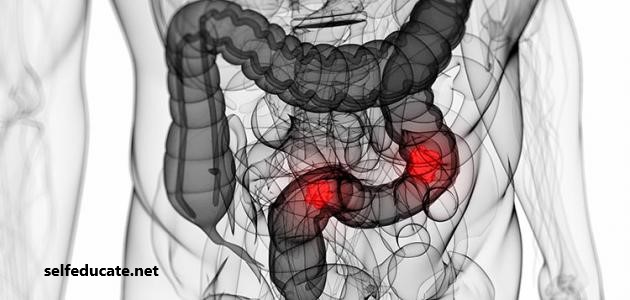Irritable bowel syndrome, known as IBS, is defined as a disturbance in the function and movement of the gastrointestinal tract and is manifested as a combination of symptoms affecting the large intestine such as abdominal pain, colic, increased gas, bloating, mucus with stool, sudden need for output, Feeling of total intestinal dislocation, diarrhea, constipation or both. Other names of this condition include Irritable Bowel Syndrome, Colorectal Syndrome, Cough Colon, Irritable Colon, and Colitis. It is worth noting that Irritable Bowel Syndrome is more common in women.
Irritable Bowel Syndrome is different from inflammatory bowel disease despite some similarity in symptoms. Intestinal inflammatory bowel disease is more serious due to inflammation of the intestine, including ulcerative colitis and Crohn’s disease. Irritable bowel syndrome does not cause harmful complications caused by disease Irritable bowels such as permanent damage to the bowel, intestinal bleeding, rectal bleeding, and ulcers.
Irritable bowel forms
There are three main forms of Irritable Bowel Syndrome:
- Figure I: Irritable bowel syndrome with diarrhea.
- Figure II: Irritable bowel syndrome with constipation.
- Figure III: This type is characterized as a combination of alternation between diarrhea and constipation.
Irritable bowel syndrome treatment
Treatment of lifestyle change
The first line in treating irritable bowel syndrome is a lifestyle change, following some diet tips, including:
- Fiber: It is recommended to eat the natural fibers found in fruits, vegetables, and legumes, which reduces the problem of constipation, but the amount of fiber in the food should be gradually increased to avoid the occurrence of gas and colic.
- Avoid dairy products: It is recommended to avoid dairy products for people suffering from allergies to lactose, in this case, it is recommended to take milk as an alternative option for milk, or eat Enzymes digestion of lactose, and may advise the doctor to stay away from all dairy products.
- Avoid certain types of foods and beverages: Avoid certain types of foods and beverages that cause increased irritable bowel syndrome and symptoms, including legumes, cabbage, cauliflower, broccoli, chocolate, fatty or fried foods, sugar-rich foods, artificial sweeteners, nuts, caffeine, soda, and alcohol.
- Exercise healthy habits: drinking water in sufficient quantities, eating small and multiple meals, non-smoking, exercise, good sleep, and eating probiotics.
Treatment with medications
The following is a simplified explanation of the range of medications used to control irritable bowel syndrome:
Diarrheal medications :
- Rifaxymine, an antibiotic that reduces bacterial growth and causes diarrhea.
- Alosetron, used for some severe diarrhea cases that accompany the irritable bowel syndrome in women only; it helps to relax the colon and slow down the bowel movement.
Anticoagulants:
- Laxatives: such as polyethylene glycol, bisacodyl, Sina, and lactulose.
- Antidepressants are selective serotonin reuptake inhibitors such as; fluoxetine, citalopram, and paroxetine.
Herbal Therapy and Alternative Medicine:
The following is a range of medical treatments that support previous treatments, which can improve the condition of irritable bowel syndrome in some people:
- Acupuncture: The effectiveness of this type of traditional Chinese medicine has been shown to be effective in the treatment of chronic pain, but studies are still underway to prove its effectiveness in the treatment of irritable bowel syndrome.
- Food supplements of oils: The most important of which is evening primrose oil, which can reduce the symptoms of irritable bowel syndrome especially in women during the period of the menstrual cycle, borage oil extracted from the seeds of one of the known weeds and fish oil, but there is no scientific evidence of the usefulness of fish oil in the colon Nervous.
- Probiotics: Probiotics are used to restore the natural balance of beneficial bacteria found in the digestive system. This can improve the symptoms of irritable bowel syndrome and the quality of the patient’s life. The most common types of probiotics are lactobacillus, acidophilus and infantile dysplasia.
Psychotherapy:
Psychotherapy may help relieve irritable bowel syndrome, and possible psychological treatments include:
Control of stress; this helps to reduce the pain and colic that accompany the nervous colon; The following ways can be used to relieve tension:
- Practice relaxation exercises and meditation.
- Practice walking and yoga exercises constantly.
- Get enough sleep.
- Stay away from circumstances and situations that cause tension as much as possible.

